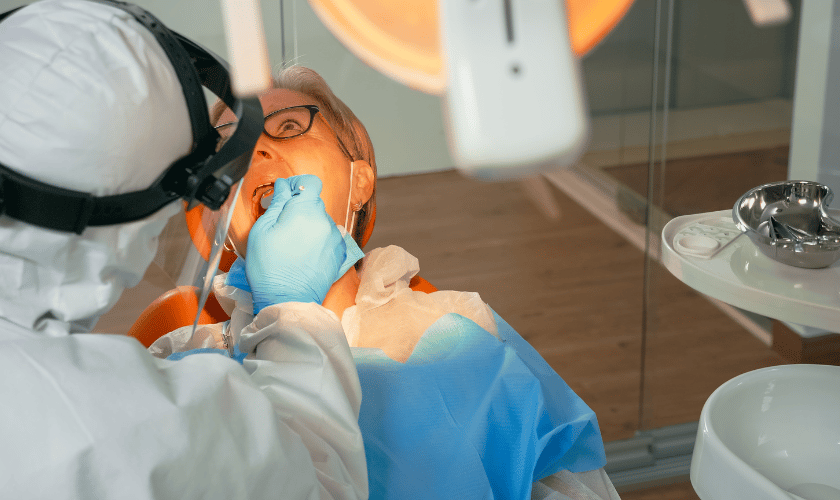
Oral surgeons are highly skilled professionals who specialize in procedures that involve the mouth, jaw, and face. Oral surgery involves a wide range of treatments from simple tooth extraction to a complex realignment of facial bones. It is important to understand what oral surgeries can do for you so you can make an informed decision about your treatment plan. This blog will provide an overview of what is involved in oral surgery and how it can improve your oral health. We’ll take a look at the types of procedures, potential risks, and benefits before offering some frequently asked questions about the process.
Types of Oral Surgery
Oral surgery encompasses a range of treatments, including extractions, implants, jaw Realignment and contouring, maxillofacial trauma repair, frenectomies, and more.
Extractions
Extractions are among the most common types of oral surgery. This includes both simple tooth extraction (removal of a single tooth) and surgical extraction (removal of multiple teeth or impacted teeth).
Implants
Dental implants are a popular choice for replacing missing teeth. These titanium posts are placed in the jawbone and act as a root for a replacement tooth. Additionally, implants can also be used to secure dentures, bridges, and other dental prosthetics.
Jaw Realignment and Contouring
Jaw realignment and contouring can improve facial symmetry and reduce the effects of TMJ disorder. This procedure is typically done with orthognathic surgery, which involves cutting and reshaping the jawbone to bring it into proper alignment.
Potential Risks
As with any surgical procedure, there are potential risks associated with oral surgery. These may include infection, excessive bleeding, nerve damage, or blood clots. It is important to discuss the potential risks of your treatment plan with a qualified oral surgeon.
Infection
Infection is a common risk of any type of surgery. To reduce the risk of infection, it is important to take proper care of your mouth after the procedure has been completed. This includes eating soft foods, brushing and flossing regularly, and avoiding smoking or drinking alcohol.
Excessive Bleeding
Excessive bleeding can occur during or after surgery. To minimize the risk of excessive bleeding, it is important to follow your surgeon’s instructions for pre and post-operative care.
Nerve Damage
In some cases, nerve damage can occur as a result of oral surgery. This could lead to numbness or tingling in the affected area. To reduce the risk of nerve damage, it is important to communicate any concerns with your surgeon.
Benefits
Oral surgery can provide a range of benefits, from improved oral health to an enhanced appearance.
Improved Oral Health
Oral surgery can improve your overall oral health by removing decay or infection, replacing missing teeth, and preventing future issues. This can help to restore your confidence in your smile and improve the function of your mouth.
Enhanced Appearance
Some oral surgeries, such as jaw contouring or dental implants, can improve the aesthetics of your face and make you look more attractive. Additionally, some procedures can help to reduce the signs of aging.
Improved Quality of Life
Oral surgery can improve your quality of life by reducing pain and discomfort caused by TMJ disorder, missing teeth, or other oral health issues. Additionally, this procedure can help to restore confidence in your smile.
Frequently Asked Questions
Is Oral Surgery Painful?
The amount of pain associated with oral surgery will vary depending on the procedure being performed and your individual pain tolerance. Generally speaking, local anesthesia or sedation is used during these procedures to minimize discomfort.
How Long Does It Take to Recover From Oral Surgery?
The amount of time needed to recover from oral surgery will depend on the type of procedure being performed. Generally speaking, patients can expect to return to their normal activities within a few days to several weeks after having the procedure done.
Are There Any Long Term Side Effects?
In most cases, there are no long-term side effects associated with oral surgery. However, it is important to discuss any potential risks or complications with a qualified professional before having the procedure done.
Conclusion
Oral surgery can improve your oral health and enhance your appearance. This type of procedure can also improve your quality of life by reducing pain and discomfort. However, it is important to discuss any potential risks or complications with a qualified professional before having the procedure done.
